Year 1
The English curriculum is built around the three interrelated strands of language, literature and literacy. Teaching and learning programs should balance and integrate all three strands. Together, the strands focus on developing students' knowledge, understanding and skills in listening, reading, viewing, speaking, writing and creating. Learning in English builds on concepts, skills and processes developed in earlier years, and teachers will revisit and strengthen these as needed.
In Year 1, students communicate with peers, teachers, known adults and students from other classes.
Students engage with a variety of texts for enjoyment. They listen to, read, view and interpret spoken, written and multimodal texts designed to entertain and inform. These encompass traditional oral texts including Aboriginal stories, picture books, various types of stories, rhyming verse, poetry, non-fiction, film, dramatic performances and texts used by students as models for constructing their own texts.
The range of literary texts for Foundation to Year 10 comprises Australian literature, including the oral narrative traditions of Aboriginal and Torres Strait Islander Peoples, as well as the contemporary literature of these two cultural groups, and classic and contemporary world literature, including texts from and about Asia. Literary texts that support and extend Year 1 students as independent readers involve straightforward sequences of events and everyday happenings with recognisably realistic or imaginary characters. Informative texts present a small amount of new content about familiar topics of interest and topics being studied in other areas of the curriculum. These include decodable and predictable texts which present a small range of language features, including simple and compound sentences, some unfamiliar vocabulary, a small number of high-frequency words and words that need to be decoded phonically, as well as illustrations and diagrams that support the printed text.
Students create a variety of imaginative, informative and persuasive texts including recounts, procedures, performances, literary retellings and poetry.
(source: www.australiancurriculum.edu.au)
Achievement Standard
Receptive modes (listening, reading and viewing)
By the end of Year 1, students understand the different purposes of texts. They make connections to personal experience when explaining characters and main events in short texts. They identify that texts serve different purposes and that this affects how they are organised. They describe characters, settings and events in different types of literature.
Students read aloud, with developing fluency. They read short texts with some unfamiliar vocabulary, simple and compound sentences and supportive images. When reading, they use knowledge of the relationship between sounds and letters, high-frequency words, sentence boundary punctuation and directionality to make meaning. They recall key ideas and recognise literal and implied meaning in texts. They listen to others when taking part in conversations, using appropriate language features and interaction skills.
Productive modes (speaking, writing and creating)
Students understand how characters in texts are developed and give reasons for personal preferences. They create texts that show understanding of the connection between writing, speech and images.
They create short texts for a small range of purposes. They interact in pair, group and class discussions, taking turns when responding. They make short presentations on familiar topics. When writing, students provide details about ideas or events, and details about the participants in those events. They accurately spell high-frequency words and words with regular spelling patterns. They use capital letters and full stops and form all upper- and lower-case letters correctly.
(source: www.australiancurriculum.edu.au)
- Plus Plan
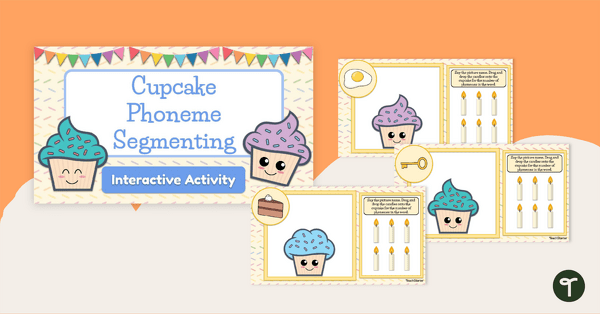
How Many Candles? Phoneme Counting Interactive Activity
Practise breaking words into their phonemes with this fun cupcake-themed interactive activity.
- Plus Plan
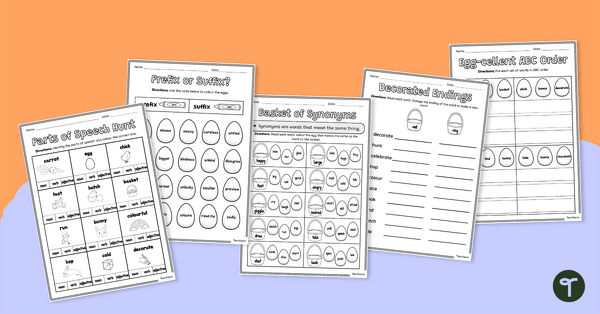
Easter Worksheets - Grammar Practise
Practise skills learnt in literacy with this Easter-themed grammar activity pack.
- Plus Plan
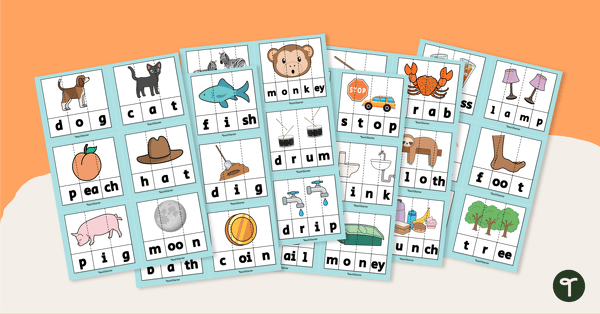
Blending Phonemes - Word Puzzles
Practise blending sounds to encode and decode words with these hands-on word puzzles.
- Plus Plan
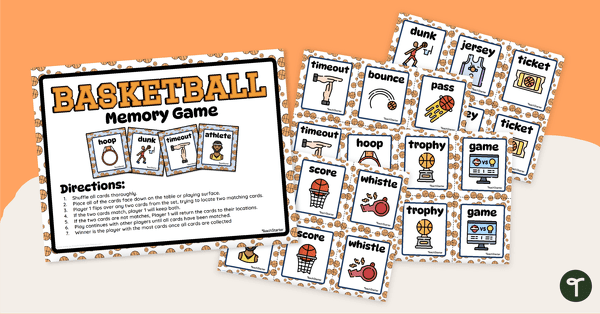
Basketball Memory Game
Boost vocabulary skills with a fun basketball-themed Memory game.
- Plus Plan
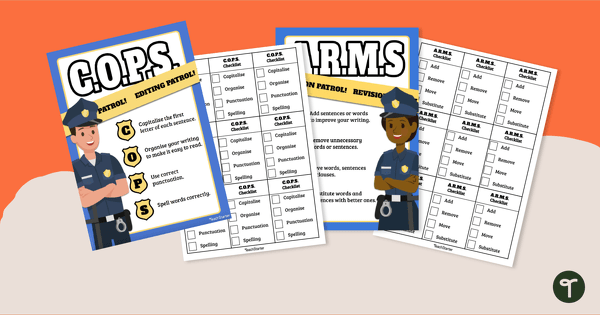
ARMS and COPS - Editing Posters and Checklists (Portrait)
Encourage your students to proofread and edit their writing using the C.O.P.S. and A.R.M.S acronyms with a pair of printable writing posters.
- Plus Plan
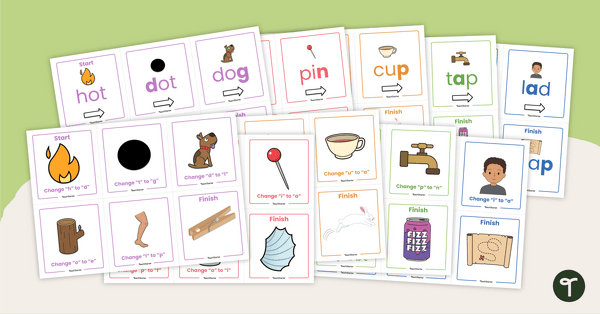
CVC Word Chain Sequencing Cards
Practise building word chains involving CVC words with these word chain sequencing cards.
- Plus Plan
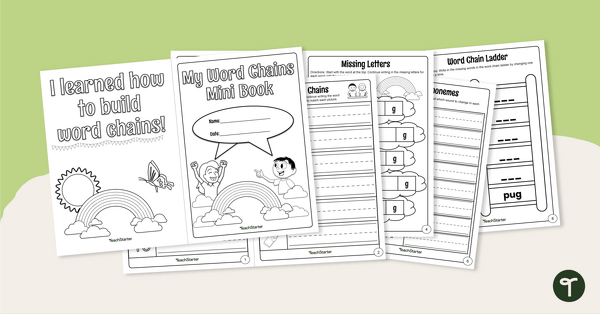
Word Chains Mini-Book
Practise spelling CVC words and manipulating their phonemes to create word chains with this fun-sized mini-book.
- Plus Plan
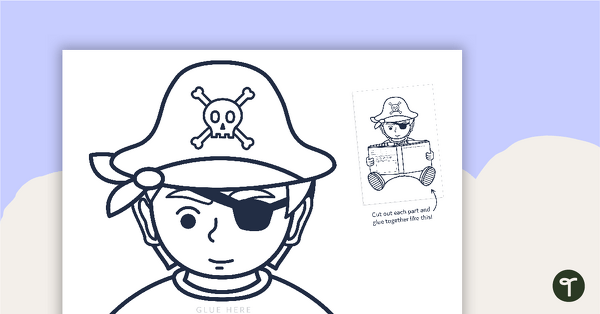
Pirate Book Report Template
Arrr!... really great pirate book report template!
- Plus Plan
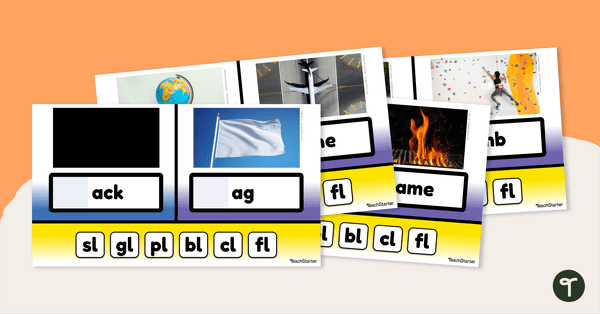
Initial L-Blends - Interactive Activity
Become familiar with words that begin with an l-blend using this interactive digital resource.
- Plus Plan
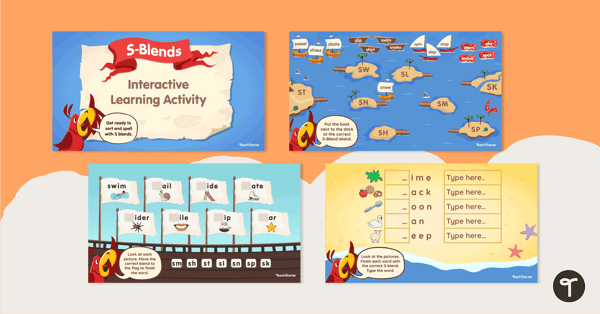
Word Building with S-Blends - Interactive Activity
Decode and segment words containing an initial s-blend.
- Plus Plan
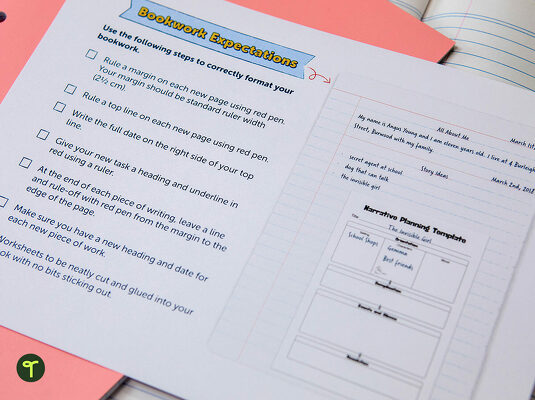
Literacy Bookwork Expectations Posters
A checklist for students to refer to when displaying literacy bookwork. There are low colour and black and white versions, plus editable versions in case you need to add your own expectations.
- Plus Plan
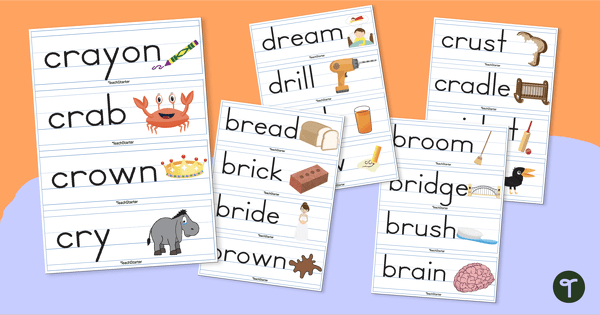
R Blend Word Wall Vocabulary
Forty-eight R blend vocabulary cards for a word wall.
- Plus Plan
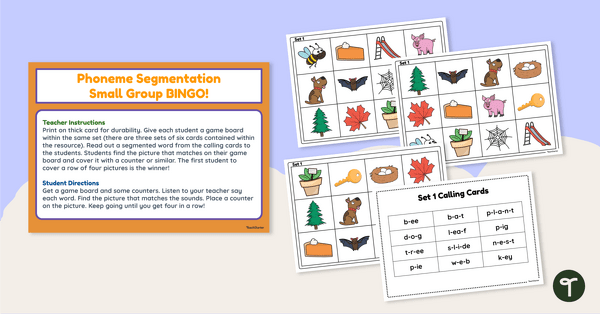
Phoneme Segmentation Bingo
Help students master phoneme segmentation through targeted listening with this fun and engaging bingo game.
- Plus Plan
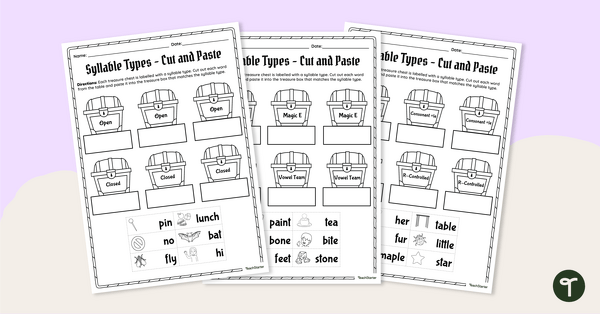
Syllable Types - Cut and Paste Worksheets
Identify and match words to the correct syllable types with this set of three treasure-themed worksheets.
- Free Plan
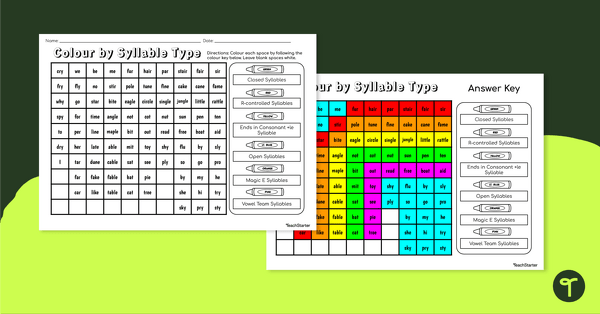
Colour by Syllable Type - Worksheet
Practise identifying the six syllable types in common words with this colour-coding activity.
- Plus Plan
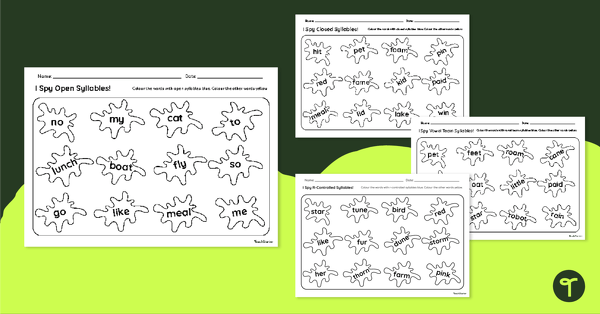
I Spy Syllable Types - Worksheets
Identify and colour words according to their syllable types with this set of six worksheets.
- Plus Plan
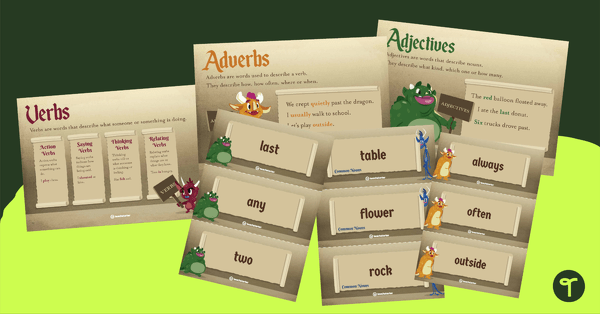
Parts of Speech Wall Display
A parts of speech wall display that includes posters and word wall cards.
- Plus Plan
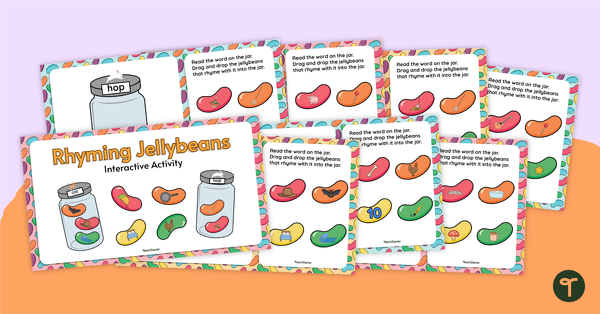
Rhyming Jellybeans - Interactive Activity
Sweeten up your literacy lessons with an interactive jellybean-themed rhyming word game for the Early Years.
- Plus Plan
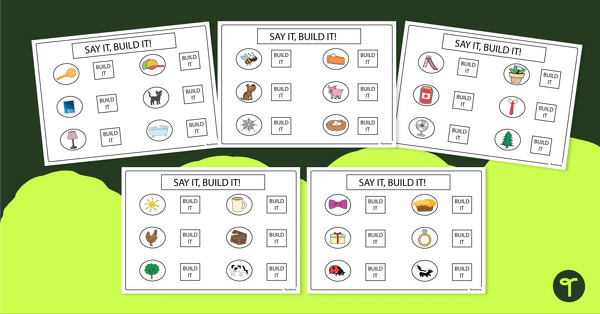
Phoneme Segmentation Work Mats - Build It!
Develop phonemic awareness using hands-on manipulatives with this set of ten phoneme segmentation work mats.
- Plus Plan
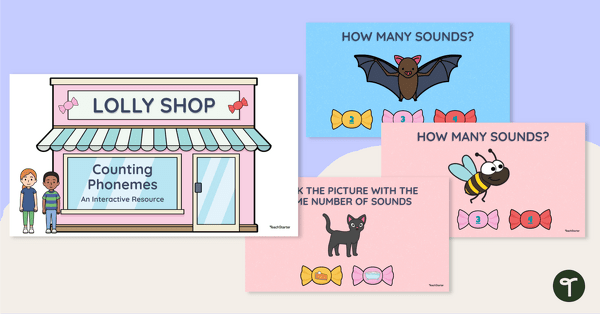
Counting Phonemes Interactive Activity
Help students segment 2-, 3- and 4-phoneme words into their distinct sounds with this engaging interactive resource.
- Plus Plan
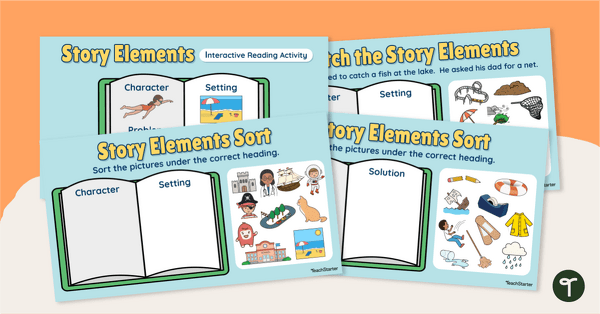
Story Elements Interactive Activity
Introduce your kindergarten and first-grade students to the elements of a story using this interactive digital activity.
- Plus Plan
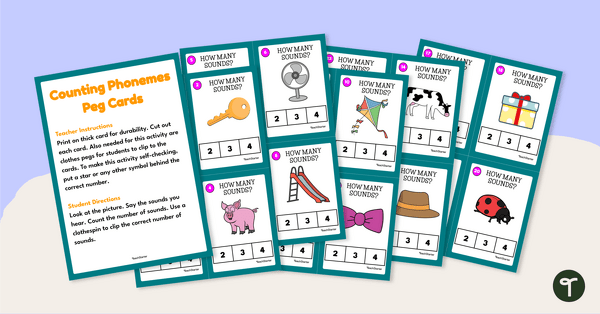
Counting Phonemes Peg Cards
Help students gain mastery in phoneme segmentation with these hands-on peg cards.
- Plus Plan
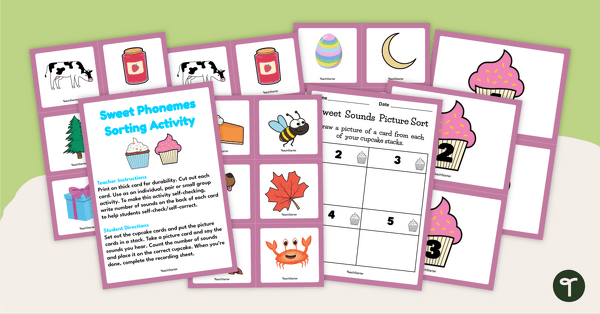
Sweet Phonemes - Sorting Activity
Practise segmenting phonemes in common words with this sweet sorting activity.
- Plus Plan
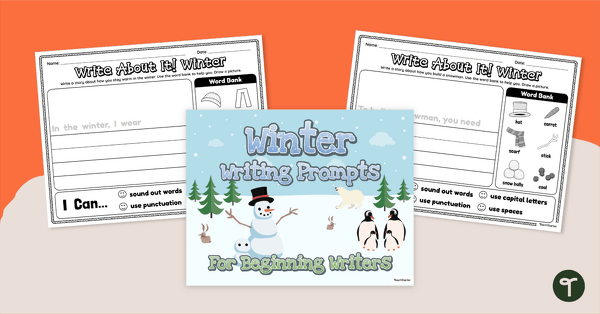
Winter Writing Prompts for Beginning Writers
Use the season of winter to inspire writing in your early years classroom.
- Plus Plan
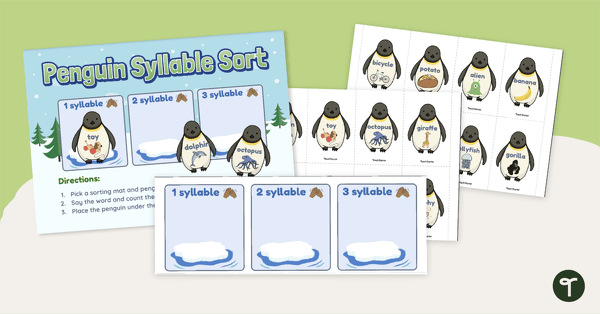
Counting Syllables Sorting Activity - Penguins
Help these freezing cold syllable penguins escape the frigid water by sorting them onto the correct ice floes.
- Plus Plan
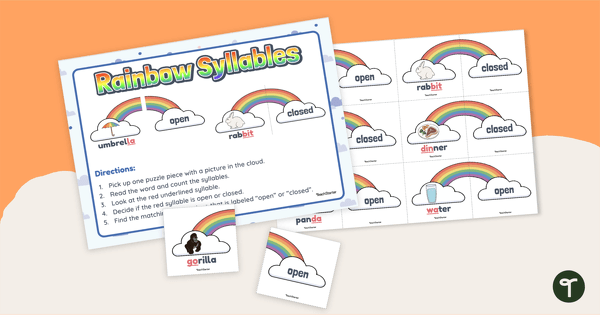
Open and Closed Syllables Match Up Activity
Practise identifying open and closed syllables with a rainbow-themed matching activity.
- Plus Plan
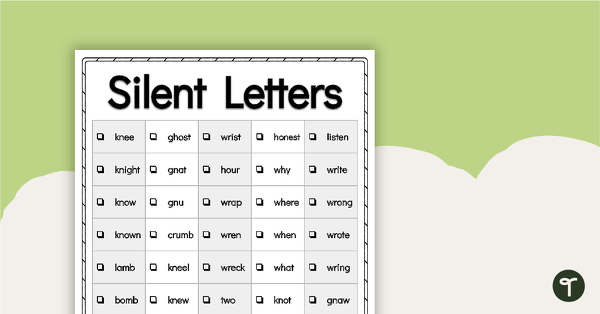
Word Study List - Silent Letters
Introduce and explore words containing silent letters with this extensive list of words.
- Plus Plan
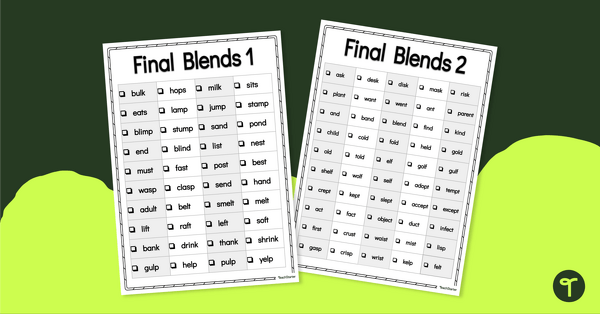
Word Study List - Final Blends
Introduce and explore words containing final blends with this extensive list of words.
- Plus Plan
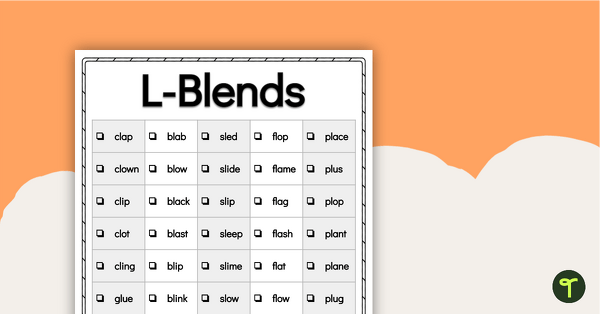
Word Study List - L Blends
Introduce and explore words containing an initial l-blend with this extensive list of words.
- Plus Plan
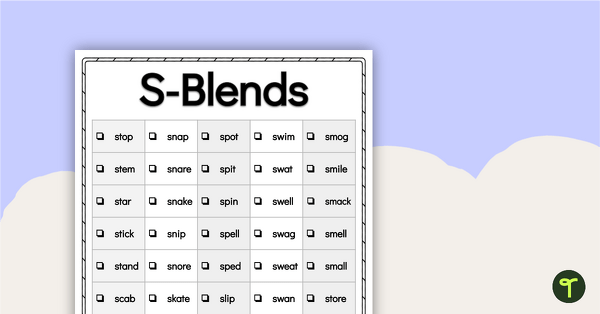
Word Study List - S Blends
Introduce and explore words containing an initial s-blend with this extensive list of words.
- Plus Plan
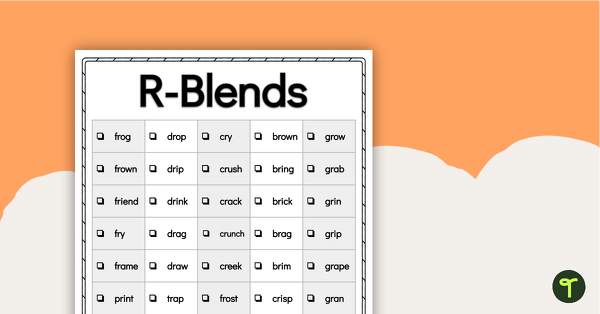
Word Study List - R Blends
Introduce and explore words containing an initial r-blend with this extensive list of words.
- Plus Plan
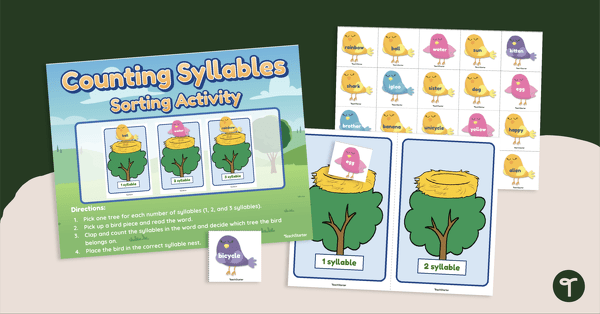
Counting Syllables Sorting Activity - Birds
Save the baby birds by clapping and counting syllables in words with this syllable sorting activity.